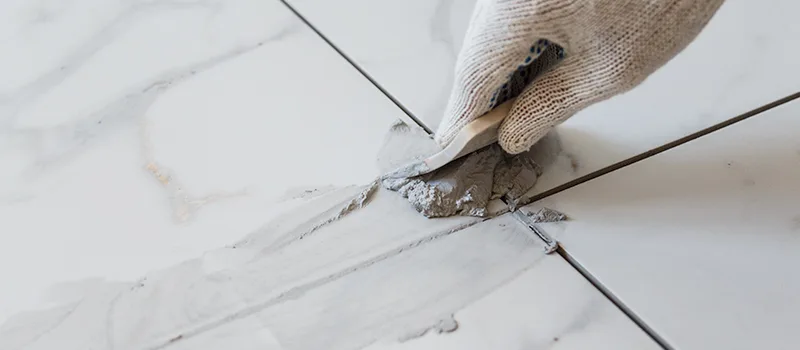Exploring the Vital Role of Grout
Grout is a mixture of cement, aggregate and sand or water. They are commonly used for filling gaps between tiles, stones etc.
There are two types of grouts: cementatious grout and chemical grout. Each grouts has subcategory like sanded and unsanded grouts.
What Is The Main Purpose Of Grout?
The main purpose of grout is filling gaps and sealing joints. Joints like space between tile or stones. Grouts are filled in these spaces preventing the tiles or stones from getting cracked edges.
Types of Grout
Below are some of the most common Grouts –
Epoxy Grout
Epoxy grout is a type of grout that is made from epoxy resins and a filler powder. It is commonly used in various construction and building applications, particularly for filling gaps between tiles. Epoxy grout offers several advantages over traditional cement-based grouts, making it a popular choice in certain situations.
Some benefits of epoxy grouts are –
- Durability: Epoxy grouts are highly durable, offering resistance to stains, chemicals, and moisture, ensuring a longer lifespan compared to traditional grouts.
- Stain Resistance: Epoxy grouts are known for their excellent stain resistance, making them ideal for areas prone to spills and stains, such as kitchens and bathrooms.
- Water Resistance: With superior water resistance, epoxy grouts are suitable for wet environments like showers and swimming pools, preventing water damage and maintaining structural integrity.
- Adhesive Properties: Epoxy grouts provide a strong adhesive bond between tiles, enhancing stability and reducing the risk of tile displacement, particularly in areas with heavy loads.
- Color Stability: Epoxy grouts maintain their color over time, resisting fading and discoloration, ensuring a consistent and aesthetically pleasing appearance in various applications.
Epoxy Grouts are mostly preferred on floors or showers which gives you an extra protection from moisture.
Cementitious Grout
Cementitious grout is a type of grout that is made primarily from a mixture of cement, sand, and water. It is commonly used in construction and building projects for various applications, with one of the most common being filling the gaps between tiles. Cementitious grout is available in sanded and unsanded varieties, depending on the size of the grout lines.
Sanded Grout
Sanded grout is a type of cementitious grout that contains fine sand particles. This additional sand helps reinforce the grout, making it stronger and more resistant to cracking. Sanded grout is commonly used in tile installations where the gaps between tiles are wider than 1/8 inch (3 mm).
But sanded grout is porous as it contains abrasive particles. Due to this, it may attract dirt particles. Sandedd grouts should always be sealed after installation to prevent absorption.
Quarry – Type Grout
Quarry Type Grout are same as sanded grout. Coarser grain sand is used In quarry -type Grout.
Unsanded Grout
Unsanded grout is a type of cementitious grout commonly used in tile installations. It is a mixture of Portland cement, powdered pigments for color, and other additives to enhance performance. Unlike sanded grout, unsanded grout does not contain sand particles.
Polymer Cement Grout
Polymer cement grout is a specialized type of grout used in construction and building applications. Grout is a mixture of cement, water, and sometimes sand or other fine aggregates. It is commonly used to fill gaps between tiles, bricks, or other building materials, providing structural support and preventing the infiltration of water or other substances.
Polymer cement grout differs from traditional cement grout in that it contains polymer additives. These polymers can be either acrylic or latex-based and are added to enhance the performance and properties of the grout.
Is epoxy grout better than regular grout?
Epoxy grout and regular cement-based grout have distinct characteristics, and the choice between them depends on the specific requirements of a project. Here are some factors to consider when comparing epoxy grout to regular grout:
- Stain Resistance:
- Epoxy Grout: Epoxy grout is highly resistant to stains, making it an excellent choice for areas prone to spills and staining, such as kitchens and bathrooms.
- Regular Grout: Traditional cement-based grouts may be more porous and susceptible to staining, especially when exposed to certain substances.
- Durability:
- Epoxy Grout: Epoxy grout is known for its durability and resistance to cracking, shrinking, and chemical damage. It is suitable for high-traffic areas and environments with heavy use.
- Regular Grout: While regular grout is durable, it may be more prone to cracking and damage over time, especially in areas with significant movement or vibration.
- Flexibility:
- Epoxy Grout: Epoxy grout is more flexible than cement-based grout, making it less likely to crack or break in situations where there is movement or settling.
- Regular Grout: Cement-based grouts can be less flexible, and they may develop cracks in areas prone to movement.
- Application and Installation:
- Epoxy Grout: Epoxy grout can be more challenging to work with and requires careful mixing and application. It may also have a shorter working time, so precision is essential during installation.
- Regular Grout: Cement-based grouts are generally easier to mix and apply. They have a longer working time, allowing for more straightforward installation.
- Cost:
- Epoxy Grout: Epoxy grout is typically more expensive than regular grout, which can impact the overall cost of a project.
- Regular Grout: Cement-based grouts are generally more cost-effective.
- Color Stability:
- Epoxy Grout: Epoxy grout tends to have better color stability over time, resisting fading or discoloration.
- Regular Grout: Cement-based grouts may experience some color changes over time, especially in areas exposed to sunlight.
Ultimately, the choice between epoxy grout and regular grout depends on the specific needs of the project, the type of tiles or materials being used, and the expected conditions of the installation site. Epoxy grout is often chosen for its superior stain resistance and durability, while regular grout may be sufficient for less demanding applications.
Grout Me Out
Contact us now for Grout solution & service
Contact – +91 8956740753
Web – www.jemkon.com

